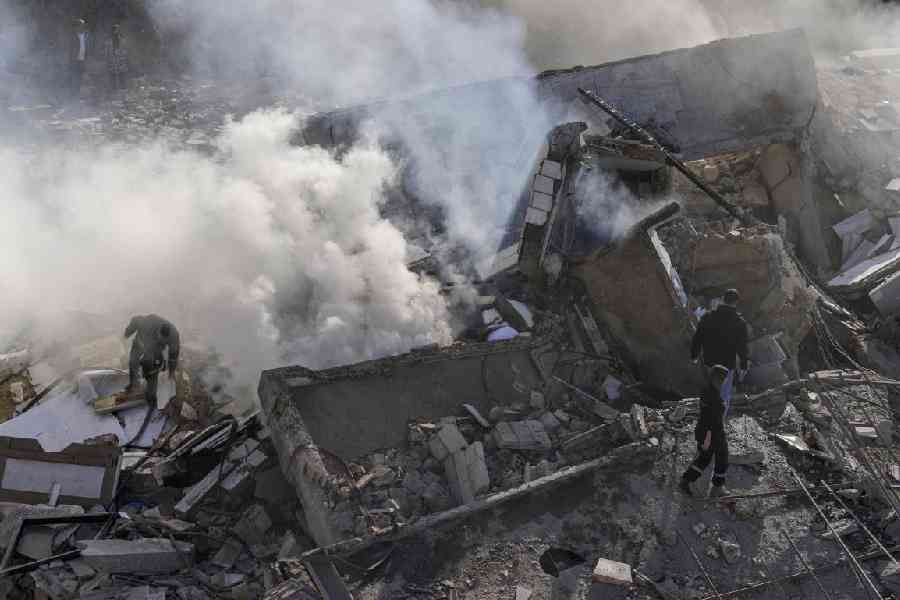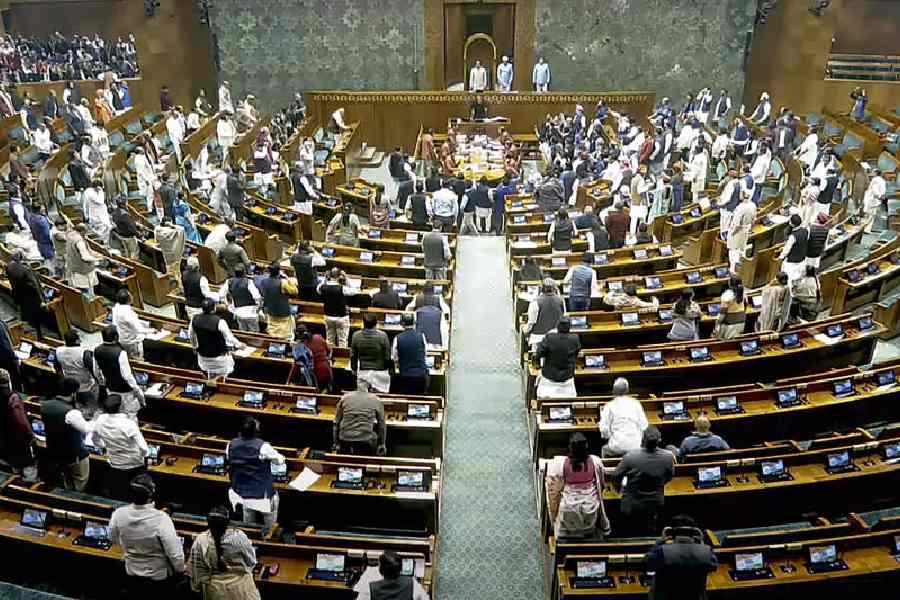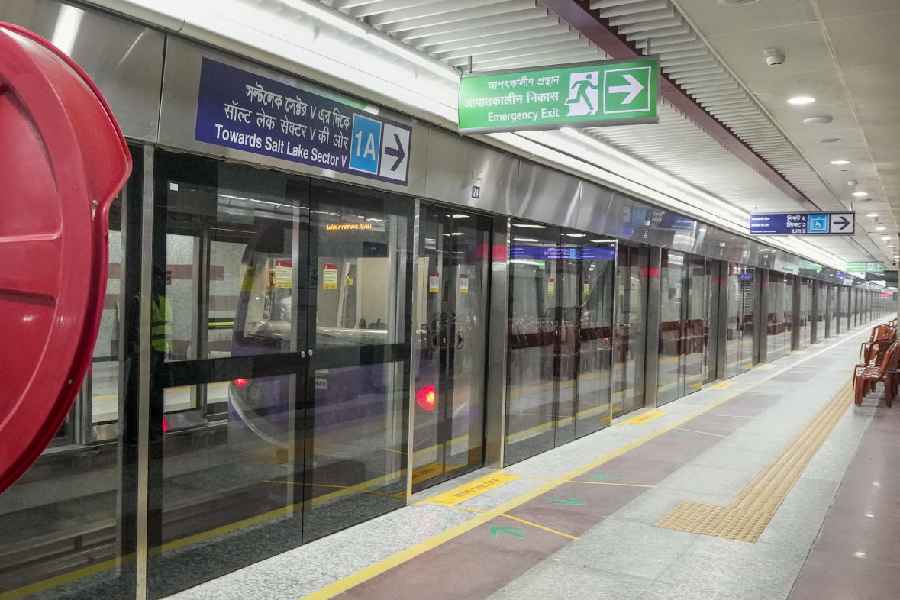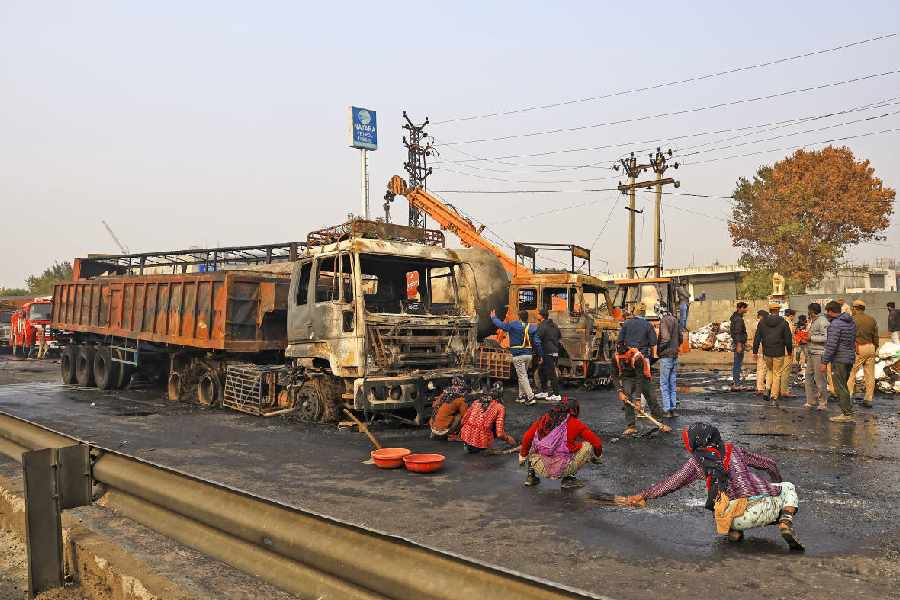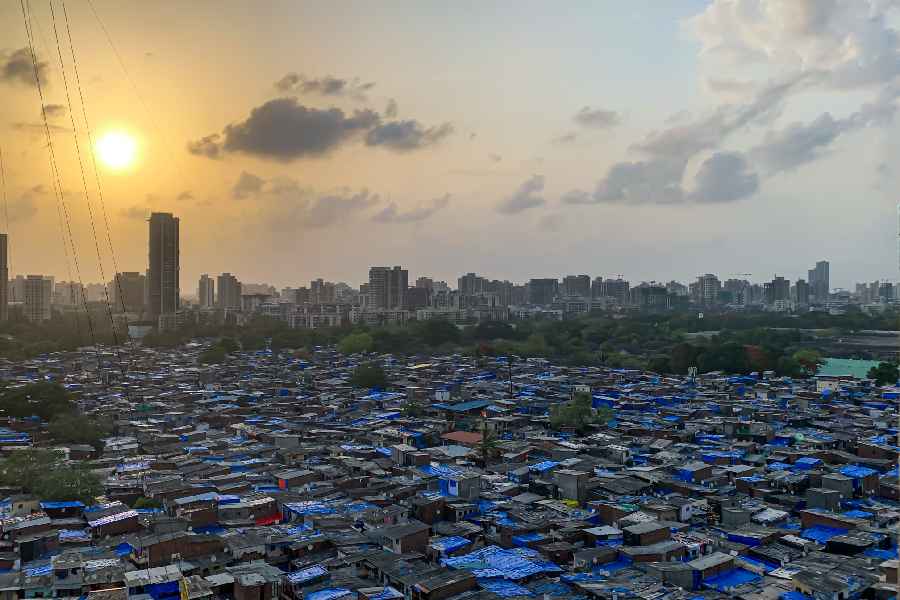The typically congested streets of Beirut were unusually empty on Monday morning. Schools that had temporarily shuttered earlier this autumn when the war first escalated were again closed. Many people who had come back to Lebanon’s capital after fleeing to the northern mountains a month ago had headed north once more.
Since Israeli airstrikes hit two neighbourhoods within Beirut on Sunday, a sense of disbelief and frustration has washed over the city. In recent weeks, the initial shock of the intensified war between Hezbollah and Israel had given way to a feeling that relative safety had returned to Beirut, as the pace of strikes slowed and the city centre remained largely unscathed.
Now that tenuous sense of security has once again been shattered — and a city already weary from two months of war is coming to grips with yet another escalation of violence.
“There is no security anymore,” said Hussein Zahwi, 49. “There is no security at all.”
On Monday morning, Zahwi stood across from one of the buildings hit in the Mar Elias neighbourhood the day before. Wisps of smoke were still wafting from its shattered store windows. The strikes ignited a large fire that burned through the night and blackened the facade of the building. An acrid smell hung in the air. The strikes on Sunday killed at least six people and injured around two dozen more, according to Lebanon’s ministry of health.
Zahwi had rented an apartment on the third floor of this building with his wife and three children weeks earlier, after Israeli airstrikes began raining down near his home in the southern suburbs of Beirut. The cramped collection of neighbourhoods there, known as the Dahiya, is effectively governed by Hezbollah, the Iran-backed militant group and political party in Lebanon that is at war with Israel.
His three children were shaken but not injured when the strikes tore through the building in Mar Elias on Sunday evening, Zahwi said. But now, with the Dahiya still too dangerous to return to, he was at a loss for where his family might go, and wondered if anywhere was really safe.
“Before I was in Dahiya. Now I’m here. The question is, where can I go next?” he said.
The strikes on Sunday were the first in Beirut proper in weeks, and came amid a new escalation in the war over the past week. In that time, Israel has unleashed its most intense bombardment yet of the Dahiya, hitting the area both day and night. In the south, Israeli forces appear to be making incursions deeper into Lebanon, moving beyond border villages that have been left in ruins.
Hezbollah said on Monday that it had attacked Israeli forces near Khiam, a large town in southern Lebanon that Israeli troops have been pushing towards. Lebanon’s state-run news agency reported heavy airstrikes on the town and the wider province.
Israel’s intensified push on the battlefield appears aimed at pressuring Hezbollah to accept the terms of a ceasefire for Lebanon devised by Israeli and American officials, analysts say.
But within Lebanon, it has stoked concerns that Israel may have been emboldened by the incoming administration of President-elect Donald J. Trump.
New York Times News Service

